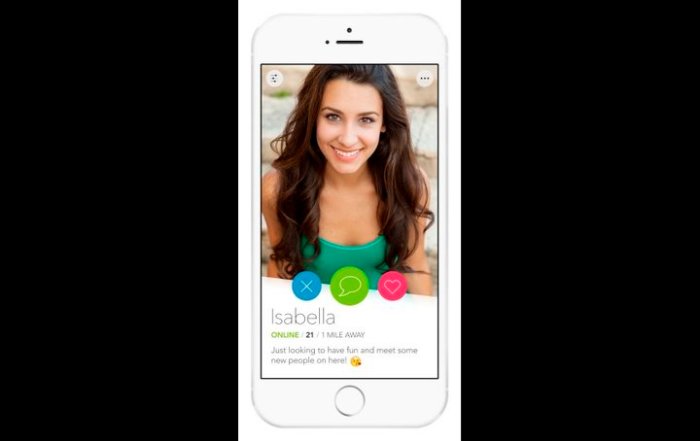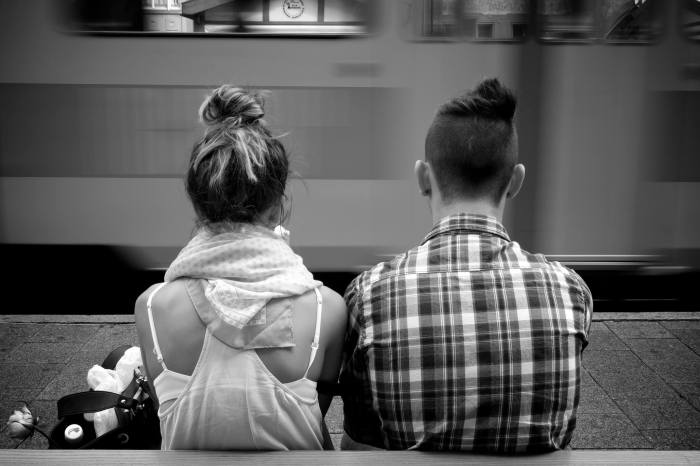“What do you do? Where did you go to school?”
Strangers ask each other these seemingly innocent questions all the time at bars, but the underlying meaning is clear: Are you intelligent for me to be interested? Do you have a high-enough-status job that I want to continue talking to you? Well, snobs everywhere can let out a collective sigh. There are plenty of websites and dating apps that allow elitists can disseminate such information immediately — even apps like Hinge and Coffee Meets Bagel give prominent placement to daters’ schools and workplaces. But dating services Sparkology and The League are unabashed about who makes the cut — accomplished young professionals. On Sparkology’s website, it says, “All members are college educated young professionals. In response to women’s experiences on other sites, we require men to be verified grads of good universities.” The site has a unique format — women pay a monthly subscription from $25 to $40 (depending on how many months they purchase) and men pay $3 per message, so that they’re not copy/pasting dozens of messages to send out. Dating app The League launched in New York in May (it is only available in San Francisco and New York), and it already has approximately 50,000 people on the waiting list (the app has approximately 10,000 active users in New York. The site brags, “SKIP THE VETTING: Remember last time you talked to that dude/chick in the bar for a full hour before they told you they were [18/backpacking from Sydney/living on their parent’s couch/commuting from White Plains]? We do all that dirty work for you.” We tested out both services at Metro to see how they stack up.
SPARKOLOGY
Sparkology is a paid dating website (with an app to accompany it) that is “for young professionals.” It purports to only allow in men from elite schools, but for whatever reason, it doesn’t matter where the women get their degrees. The feature that sets Sparkology apart is that women are allowed to approach whomever they want, but men are limited to a set number of messages and must pay per message instead of an unlimited subscription. The idea is that the rules will get men to be more thoughtful about their messages instead of sending out mass “Hi” notes. THE GOOD: It’s true that most of the men on Sparkology do have “good” jobs — I saw many doctors, lawyers, engineers and bankers on the site.
THE BAD: Oh goodness, where do I begin? The site, which is quite expensive at $25 to $50 a month for women, is not something I would even use for free. Ouch! Here’s why:
The site itself is extremely janky. It looks like something from the “You’ve Got Mail” era.
The font and front-end appearance are ugly and everything is generally user-unfriendly. There are so many basic bugs on the site. For example, when you are browsing other users’ profiles, when you click into one and then click out, you have to start at the first page of results again. It supposedly syncs with your Facebook so you can see if you share mutual friends with the people you see on the site. Cool — except it doesn’t work. I connected my Facebook account to my Sparkology profile and could not use the feature that allows you to import photos from Facebook. Moreover, I saw a person on the site with whom I share dozens of Facebook friends, but Sparkology says “0 mutual friends.” They don’t encourage you to put up much info — just an “About me” (vs. answering questions about interests or hobbies) and you can answer random questions like “Do you like horror movies?” and see other people’s answers, but that’s about it. That means the user has to be very thoughtful about creating a good profile, whereas other sites make it easier for you to fill in that info without thinking. This makes sense for an app (most apps only let you write a line about yourself) but not when you’re ostensibly clicking around to try to learn more about other users. The profiles are super weird. People put up photos of things instead of themselves, and many of the photos of the people are oddly professional and formal. The users also skew older. There are lots of men in their 40s and 50s. On top of that, some of the men on the site went to random state schools. That’s fine, but if the whole point of your dating site is to only allow in men who went to top tier schools, stay on brand. The users also don’t seem very active. Men pay $3 to message but can still keep a profile open for free, so why wouldn’t they shut it down? It’s one more avenue to meet women if they feel like it with no cost to them. Since they don’t have to pay for a subscription, they don’t have much incentive to be on the site often. The app isn’t much better than the site. No swiping and it isn’t super quick to view a person’s profile.
MY FRIEND’S TAKE: “It’s so not user-friendly.”
MY OTHER FRIEND’S TAKE: “Yeah you’re right — the site is janky as s–.”
THE BOTTOM LINE: I wasn’t feeling the spark. Skip this one.
THE LEAGUE
The League is kind of supposed to be an app for alpha males and females. They don’t literally say that, but they may as well. Founder Amanda Bradford told me that the app has a high number of Ivy League-educated users and other impressive stats — 12 percent of users are CEOs/founders and 28 percent are directors in their industries. Unlike Sparkology, it’s not all about schooling here — Bradford says the screeners look at profession and social network and self-descriptions to allow in users who are interesting and well-rounded. “It’s less about the school and more about the total package,” she explained to me. The app is hot, hot, hot right now — there are more than 100,000 people on the waitlist across the country. But fear not — screeners from The League review every profile they receive, though it takes a few weeks. Just be patient if you are not immediately admitted. THE GOOD: Many League members are highly educated (nearly half have advanced degrees) and accomplished, and The League syncs up with both Facebook and LinkedIn to make sure users aren’t lying about their professions, among other things. Members sending creepy/inappropriate messages will get kicked off the app — good news for women who are sick of #TinderNightmares or saying #ByeFelipe (sorry, dudes, but I just haven’t heard any men complaining about the same thing). Users get a handful of members to swipe right or left on per day, so it gives you some options without the overwhelming crush of infinite profiles, like Tinder.
Users are strongly encouraged — even forced — to use photos that clearly show their faces, so you won’t have to sift through annoying pictures of feet. Other than that, users can write down their interests and a quick bio line — streamlined, as an app should be. Users skew toward late 20s/early 30s — more mature than Tinder, but younger than site like Match or eHarmony.
There are almost no inactive users, as The League will kick them out.
THE BAD:This app is a haven for bros. I’ve never seen so many tanks and shirtless shots on boats. It’s not necessarily a bad thing, but some more diversity wouldn’t hurt. I obviously don’t have a large enough sample size to know, but I would guess that there aren’t too many minorities on this one. This isn’t a bad thing, but I will say that being on The League is not too different from being on Hinge if you went to a good school. The thing is, an app like Hinge connects you to friends of friends, and if you are already a fairly accomplished young professional, most of the people you’ll see on the app will also be fairly accomplished young professionals. You won’t see a dramatic difference between the users of the two apps if you fall into this category. The app is slow and buggy. Pictures take a while to load and the app itself takes a while to load. You also may not get notifications for messages, etc.
MY FRIEND’S TAKE: “This girl I know met her boyfriend on there.”
THE BOTTOM LINE: Try it — if you can get in, that is. But as Bradford herself warned, you need to be patient since the experience is culled down with a smaller community. Don’t expect it to be a one-stop-shop if you like to meet lots of people at a quick pace.
The League vs. Sparkology: We review ‘elite’ online dating services

Thinkstock


















